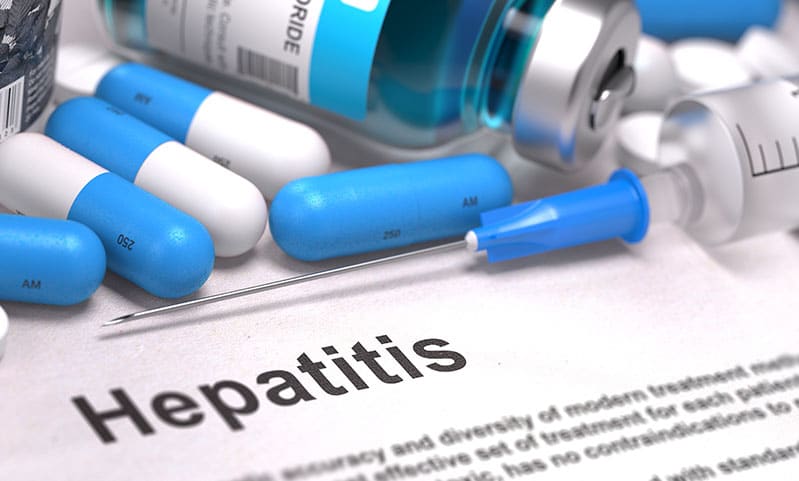Update on mysterious child hepatitis outbreak
As the BBC reported, investigations into why many children worldwide have been experiencing serious but rare hepatitis cases seems to have found a cause. Due to COVID restrictions, infants may not have been exposed to viruses to build up the necessary immunity. Without exposure to the adenovirus and adeno-associated virus two, some children developed unusual liver complications. In some instances, the liver problems were so severe that liver transplants were required, meaning that lifelong immunosuppressants will need to be taken.
Scientists at the University of North Carolina claim they’ve found the cure for hepatitis A (HAV).
During the most recent outbreak, in June 2022, tainted strawberries sent over a dozen people to the hospital across several states.
In laboratory animals, RG7834, an experimental oral drug, kept HAV from spreading and guarded kidney cells.
“Our research demonstrates that targeting this protein complex with an orally delivered, small-molecule therapeutic halts viral replication and reverses liver inflammation in a mouse model of hepatitis A, providing proof-of-principle for antiviral therapy and the means to stop the spread of hepatitis A in outbreak settings,” remarked senior author Stanley M. Lemon.
In the last five years alone, HAV outbreaks in the United States have affected 44,000 people. 27,000 of these victims required hospitalization and 400 of them died.
Researchers say a 2017 outbreak in San Diego was largely driven by local homelessness and illicit drug use.
Health officials traced a 2019 outbreak to contaminated blackberries and a 2022 outbreak to organic strawberries in several states.
Dr. Lemon cautioned that RG7834 “is a long way from human use.” However, “it points the path to an effective way to treat a disease for which we have no treatment at all,” he added.
Hepatitis is currently incurable.
Viral Hepatitis Outbreaks
Basically, hepatitis is liver inflammation.
This condition sharply limits this organ’s ability to process essential nutrients, filter blood, and fight viral infections.
Frequently, excessive alcohol use, medication side-effects, or toxic exposure causes hepatitis. However, a virus could cause it as well.
- Hepatitis A: Ingesting fecal matter causes Hepatitis A, the most common form of viral hepatitis. Even a microscopic amount of such matter could cause a serious infection. These infections usually run their course after about three months. An effective hepatitis A vaccine is available.
- Hepatitis B: Another vaccine protects people from this virus, which is basically a blood infection. Once again, even a microscopic amount of tainted blood could cause an infection. Specific causes include sharing razors, toothbrushes, and other personal items with infected people, sexual intercourse with infected people, and outbreaks at hospitals due to poor sanitary conditions.
- Hepatitis C: There’s no vaccine to prevent these infections, which resemble hepatitis C infections. The major difference is that most of these victims develop chronic hepatitis C, a serious liver condition which could be life-threatening.
Children usually get hepatitis A and B vaccines. Certain at-risk adults receive vaccines as well.
Initial hepatitis infection symptoms include fever, nausea, vomiting, abdominal pain, dark urine, fatigue, loss of appetite, light-colored stools, joint pain, and jaundice.
Chronic hepatitis symptoms often don’t appear for several years, or even several decades, after the initial symptoms dissipate.
FDA Recalls
HAV (Hepatitis A Virus) outbreaks are the most dangerous outbreaks to the largest number of people.
Anyone, and not just an at-risk individual, could get HAV. Viral infections are especially dangerous for people with pre-existing medical conditions.
Food and Drug Administration recalls, like the 2022 strawberry recall, only contain hepatitis and other food-borne illness outbreaks.
These recalls aren’t preventative.
By the time bureaucrats issue such recalls, hundreds or thousands of people have already been exposed.
Moreover, FDA recalls do nothing to assist victims.
These victims are usually stuck with high medical bills which, in many cases, a group health insurance plan will not pay.
Additionally, if the infection lasts more than a few days or becomes chronic, FDA recalls don’t compensate these victims for their pain and suffering. They must suffer in silence.
We should clear up one further point.
The Food and Drug Administration doesn’t have the power to force companies to recall dangerous products or tainted food. These regulators can only publicly pressure companies to take such action.
Over the years, progressive lawmakers have repeatedly tried to give the FDA this additional power. Industry lobbyists have blocked all these efforts.
Protecting Yourself
Simple precautions, like getting a vaccine, avoiding risky behavior, and thoroughly scrubbing fresh fruits and vegetables, are the best way to guard against hepatitis infections.
Unfortunately, these measures aren’t always available and aren’t always 100 percent effective.
Furthermore, prevention does nothing to compensate victims if they get sick.
Usually, companies are strictly liable for the injuries their defective products cause.
The companies that sell fresh fruits and vegetables can easily, and relatively cheaply, virtually eliminate the risk of HAV or other contamination.
Strict liability, and the punitive damages these claims often include, forcing companies to take such measures, even if these things cut into their precious profits.
Medical hepatitis outbreaks are a little different.
Compensation is available if a New York personal injury attorney establishes negligence, or a lack of care. Clinics, hospitals, and other such businesses usually have a fiduciary duty to keep people safe.
The doctors and other medical professionals who work at these businesses must set everything else aside and only do what is best for their patients.
Sometimes, these two legal areas overlap.
For example, a defective medical device might cause a viral infection in one patient, and the medical staff might not do anything to contain that outbreak.
Tainted food and medical products often cause serious injuries. For a free consultation with an experienced personal injury attorney in New York, contact Napoli Shkolnik, PLLC.
